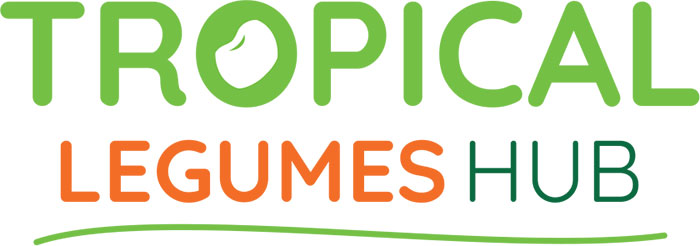Breeding tropical legume crops for resilient cropping systems in Sub-Saharan Africa
Summary
Legume crops are important components of sustainable agricultural production, household income, and dietary systems. However, legume production in the tropics is challenged by a number of biotic (diseases and pests) and abiotic (heat and drought) stresses. With support from bilateral projects such as Tropical Legumes (TLI, TLII, and TLIII), CGIAR centers together with national research partners devoted resources and time to address these challenges. Genetic resources such as reference sets, pre-breeding, magic and intra-specific mapping populations, as well as genomic resources such as comprehensive genetic maps, whole genome sequences, QTLs, and trait-specific markers have been developed for tropical legume crops such as chickpea, groundnut, common bean, pigeonpea, soybean, and cowpea. Furthermore, integrated breeding approaches including high-throughput genotyping and phenotyping platforms, marker-assisted selection (MAS) in pedigree breeding schemes, marker-assisted backcrossing (MABC), and marker-assisted recurrent selection (MARS) have contributed to accelerated development of breeding lines and varieties. Improved varieties have been released and disseminated together with integrated crop management practices. Innovative seed and associated technology dissemination systems including public–private sector partnerships, community seed production initiatives, quality declared seed, mini seed packs, contractual seed production, and revolving seed funds, among others, were used to popularize these varieties. This has resulted in enhanced adoption and subsequent improvement in productivity. More efforts are needed to enhance genetic gain by reducing the time required for cultivar development through application of genomic and phenomic tools, enhancing selection intensity through automation, mechanization and digitization, and increasing the crossing scale and number of cycles per year.
Open resource Download resource Access resource on external site

